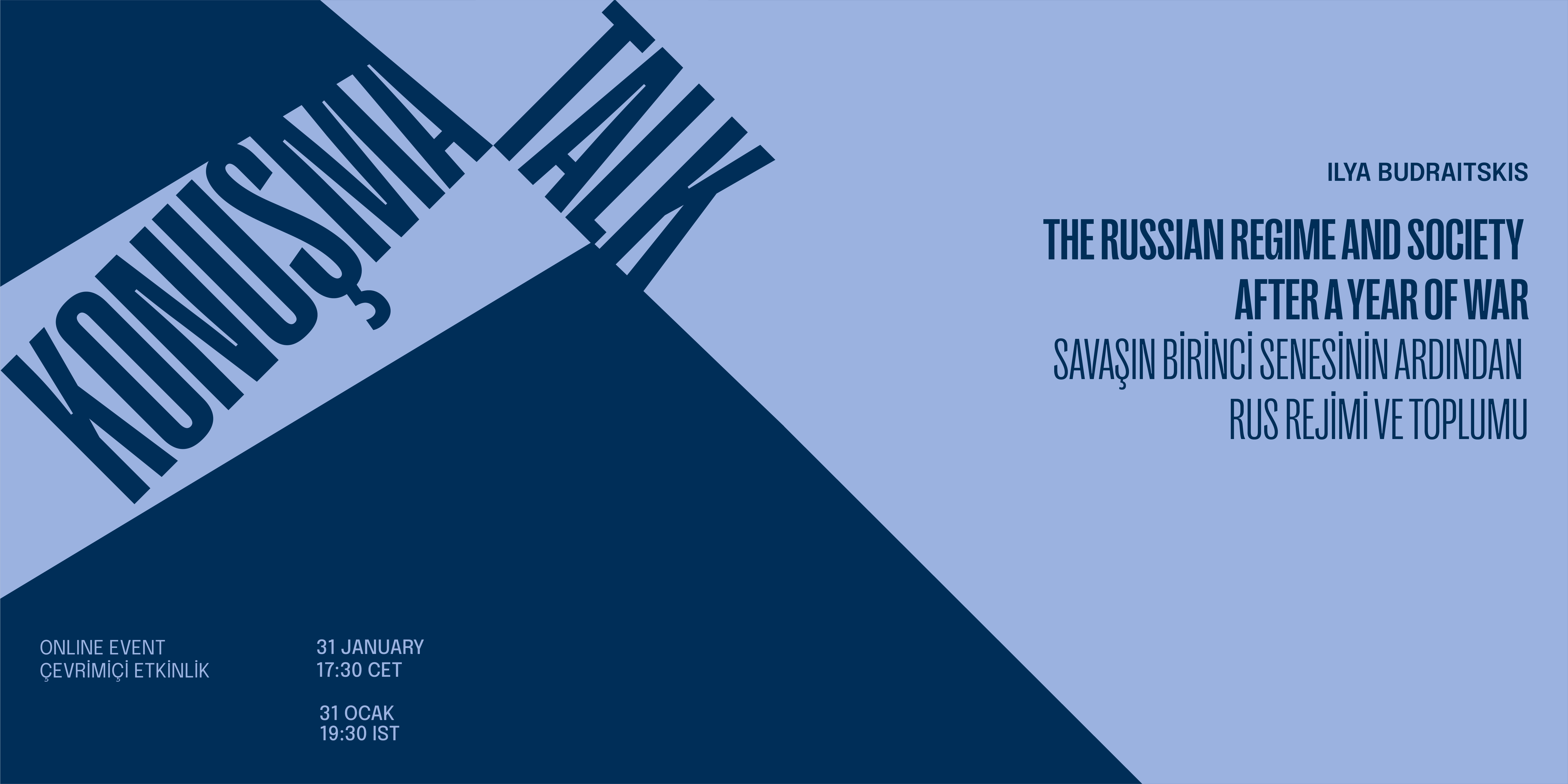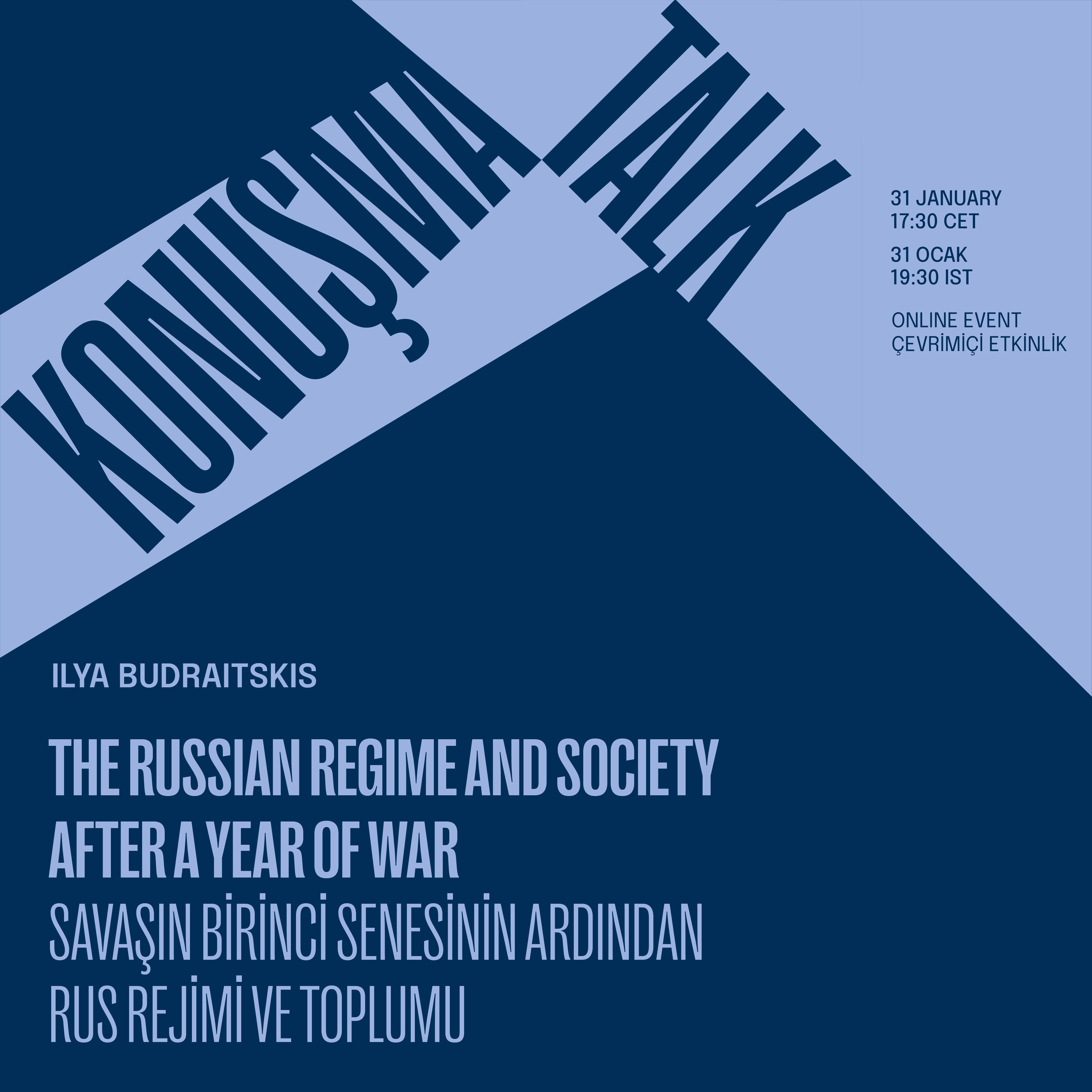

THE RUSSIAN REGIME AND SOCIETY AFTER A YEAR OF WAR
Ilya Budraitskis
31 January 17:30 CET / 19:30 IST
- Online Event
Since the beginning of the war, Russia made a turn towards an openly repressive dictatorship, which many see as a modern brand of fascism. This top-down fascism is different from the fascism of the past: it does not require mass patriotic mobilization and is not accompanied by a rise in nationalist enthusiasm. It may seem surprising, but after a year of war, to which hundreds of thousands were sent, and dozens of thousands have already died, the vast majority continue to perceive what is happening as “politics”, to which they have nothing to do and which they are not able to influence. What happened to Russian society, what reasons led it to its current state of liability, and what can affect its change?
Ilya Budraitskis is a political and social theorist, previously based in Moscow. He writes regularly for e-flux journal, openDemocracy, Republic.ru and other outlets, and teaches at the Moscow School of Social and Economic Sciences. Budraitskis’s essay collection Dissidents among Dissidents: Ideology, politics and The Left in Post-Soviet Russia was published by Verso in 2022.
Part of a talk program on sanctions and boycotts.